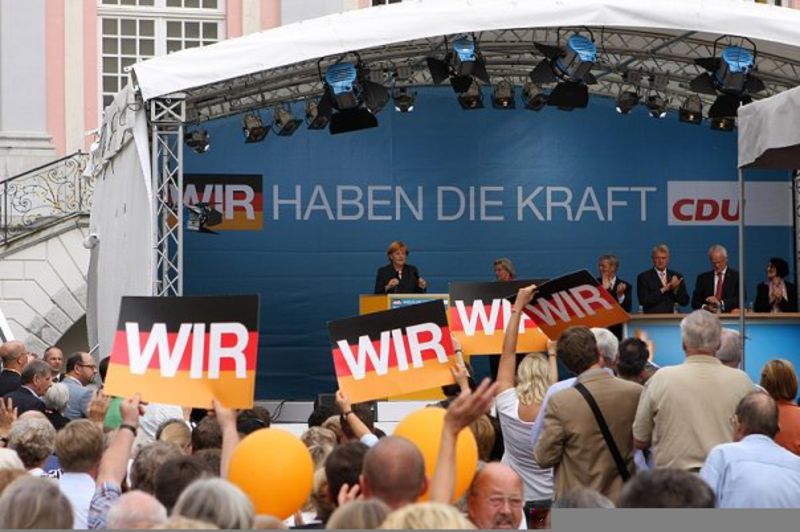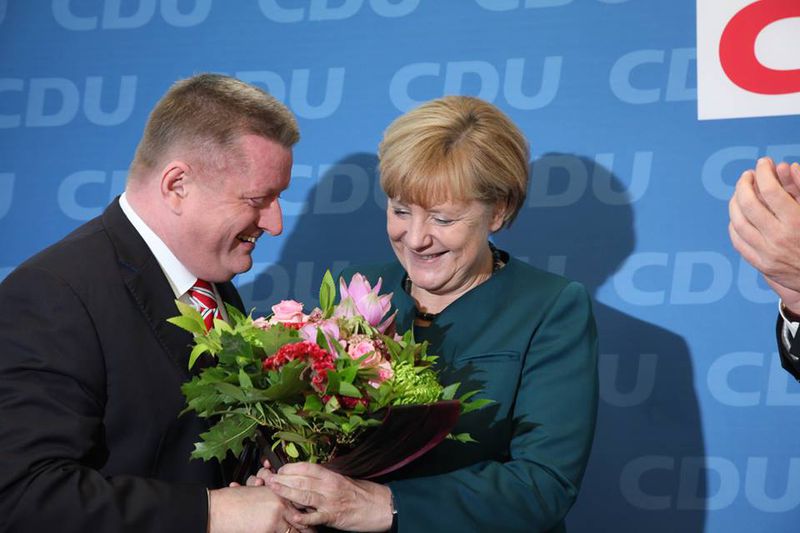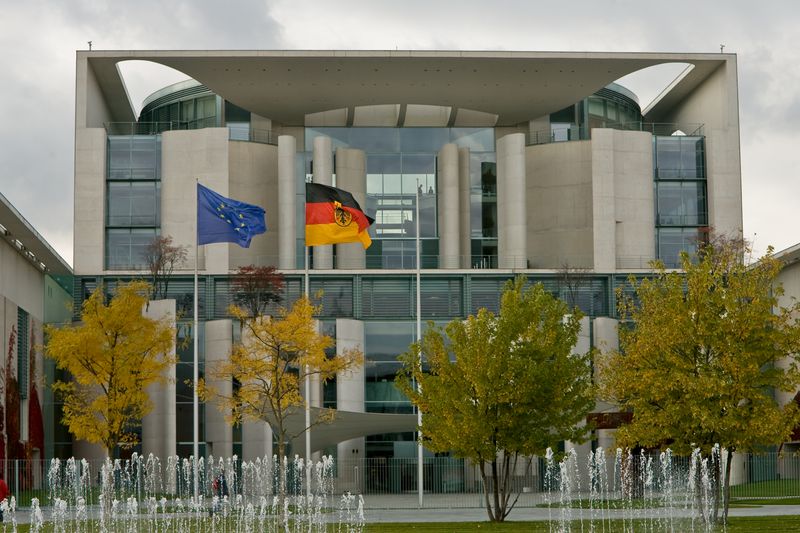Germans Want a Euro Area of Fellow Countries
Adelina Marini, September 6, 2013
 On the eve of the federal elections in Germany, UK think-tank Open Europe published an opinion poll of the German attitudes on some of the hottest issues from the European agenda that show why Angela Merkel stands big chances to be re-elected for a third term in office - most of the decisions she took so far were supported by the Germans. One of the important outcomes in the poll, however, renders a serious challenge to the eurozone and therefore to the entire European Union. And it can probably give a hint of the path Ms Merkel will choose if she stays another four years in the chancellery in Berlin. 55% of respondents believe that Germany should stay in the zone of the single currency, but that the euro area should be restricted to a club of similarly thinking countries. 34 per cent of those asked are against such an idea.
On the eve of the federal elections in Germany, UK think-tank Open Europe published an opinion poll of the German attitudes on some of the hottest issues from the European agenda that show why Angela Merkel stands big chances to be re-elected for a third term in office - most of the decisions she took so far were supported by the Germans. One of the important outcomes in the poll, however, renders a serious challenge to the eurozone and therefore to the entire European Union. And it can probably give a hint of the path Ms Merkel will choose if she stays another four years in the chancellery in Berlin. 55% of respondents believe that Germany should stay in the zone of the single currency, but that the euro area should be restricted to a club of similarly thinking countries. 34 per cent of those asked are against such an idea.
These attitudes toward promoting the euro area to an elite club of capables are supported by the other results in the poll realised by YouGov Deutschland. A little over half of respondents do not want the next government to commit to further loans for troubled eurozone members. The poll was conducted in the same period when Wolfgang Schaeuble, the German finance minster, announced in the peak of the election campaign that Greece needed a third bailout programme (meaning a loan). But 35 per cent agree more money to be given to countries with troubles.
Also interesting is the fact that two thirds of Germans agree more money to be lent to rescue eurozone partners but only after a referendum is held. Half agree to move toward a political union with a strongly centralised budget control, but in the same time most are against that to include fiscal transfers.
Open Europe's poll is very timely because it marks the beginning of the new political season in the EU which will pass entirely under the shadow of the German elections. Not only under the shadow, but it is even formally recognised that everything is in waiting for the outcome. The results from the poll also provide ground for better understanding of the motives that drive the German citizens. In that sense, it would be worth for the Europeans that live in countries with chronically malfunctioning rule of law to note that for 48% of the Germans adhering to law is much more important than saving the euro. This result is in response to the question whether they approve the OMT operations of the European Central Bank, pronounced by the German Constitutional court as illegal. Open Europe emphasises that this shows how seriously Germans take the rule of law.
This can explain to a large extent why Germany is so cautious in agreeing new European legislation, wants more time and more consultations - because, afterwards, it will have to implement what had been agreed. Aside from showing quite clearly the German attitudes toward European problems, the poll also leaves food for thought - does the German chancellor follow the public opinion or does public opinion follow Ms Merkel's policies?
 Angela Merkel | © CDU
Angela Merkel | © CDU | © European Commission
| © European Commission | © European Commission
| © European Commission